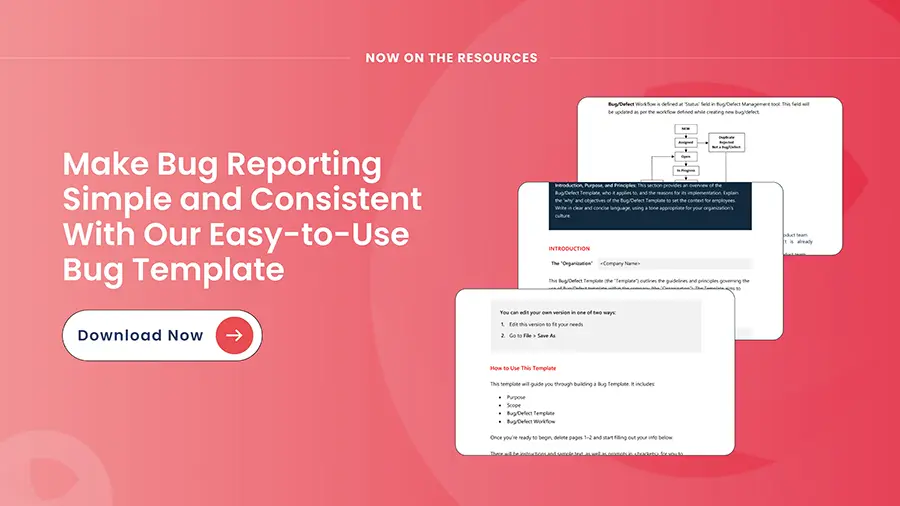An unsuccessful software rollout can have serious financial and legal consequences for companies that use enterprise resource planning (ERP) and customer relationship management (CRM) applications as core components of their operations. According to Gartner 2017 report, approximately 75% of ERP implementations fail to meet their initial objectives.
In spite of high-profile failures, there are signs that vendors and customers are working hard to ensure ERP projects succeed. Approximately 81% of ERP projects met ROI expectations a year after go-live, according to 2022 report by Panorama Consulting Solutions.
Panorama has noted that organizations have lowered their standards of success in the past, which has made it difficult to determine whether a project has been successful or not, and a measure of success has historically been at odds with the number of projects that overrun or underperform. But it seems that companies may also wish to avoid the reputational damage that results from failure, and instead define success as whatever they achieve.
Is your ERP implementation likely to contribute to this staggering situation?
Probably, yes!
ERP implementations represent a significant investment in time, money, and resources, regardless of whether you are in the early stages of the project or are already a few months into it, whether your project is an upgrade or a brand-new implementation, or even whether it will be a phased rollout or a big-bang approach.
Thus, it is obvious that your implementation team and your project sponsors must do everything possible to ensure that your ERP system can fulfil all its promises to your customers.
Having a solid understanding of the role and necessary components of successful ERP testing is one of the most effective ways to ensure that this occurs.
What is ERP?
Enterprise Resource Planning (ERP) is a type of software that helps organizations manage and integrate various business functions and processes, such as finance, accounting, human resources, procurement, and supply chain management. ERP systems provide a central repository of data that is shared by all the different business functions, enabling organizations to have a single, unified view of their operations. ERP systems can be customized to meet the specific needs of an organization and can be used to automate and streamline many business processes. Some common ERP systems include SAP, Oracle, and Microsoft Dynamics.
What is Enterprise resource planning testing?
ERP testing is the process of testing an Enterprise Resource Planning (ERP) system to ensure that it is working correctly and meeting the needs of the organization. ERP systems are complex and integrate various business functions and processes, so testing is an important step in the implementation, migration, or upgradation of an ERP system. ERP testing can include functional testing, performance testing, security testing, and integration testing, among others. The goal of ERP testing is to identify and fix any issues or bugs before the system is rolled out to users.
Types of ERP Testing
Just like any other application software or system, ERP testing includes several tests to understand its functioning and plan out integrations, upgrades, and maintenance activities. Some of these tests are –
- Functional testing: in functional testing, the individual components of ERP system are tested to ensure that they are working as intended. This involves testing the individual functions of the ERP system to ensure that they are working correctly. The ERP functional testing involves unit testing, integration testing and acceptance testing for individual components and, then system.
- Performance Testing: ERP systems are designed to handle massive workloads and volumes of data. However, as businesses scale some of these features start falling apart. Whether it’s a green-field implementation or brown-field implementation, the performance testing is required to test ERP systems under different loads and conditions to ensure that it can handle the expected volume of users and transactions.
- Security Testing: This involves testing ERP systems to ensure data, transactions, compliance, and governance rules are embedded within the developmental lifecycle. This involves testing the security aspects of the system.
- Integration testing: As businesses grow, ERP systems must communicate with other systems and applications hence testing their integration helps in assessing any flaws or potential bottlenecks.
- User acceptance testing: ERP systems can be complex and confusing for end-users. It is always advisable to conduce user acceptance testing that involves group of users to ensure that it is user-friendly and meets their needs.
- Stress testing: As discussed under performance testing, ERP systems must be able to handle stress under various load and volume situations. This involves testing the system’s performance under extreme loads to determine its breaking point and identify any bottlenecks.
- Recovery testing: Recovery testing can be part of performance testing and it involves abilty of system to recover from failures and disruptions. A lot of companies have now started practicing Chaos Engineering where some stress is artificially injected into system and then it is monitored for its ability to handle stress and recovery time.
- Regression testing: Often terms as necessary evil, regression testing tests the same functionality over and over again. This involves re-running previously completed tests to ensure that changes to the system have not introduced new bugs or issues. This is where test automation does wonders.
- Exploratory Testing: While exploratory testing has not been a norm in industry but practicing it can open doors to true customer problems. ERP systems can be put under continuous exploratory testing without adhering to any framework to explore it freely and find irregularities within every feature.
Getting ready to test your ERP systems
While doing ERP testing, teams need to focus a lot on testing individual components and systems as a whole. Plus, ERPs are meant to interact with tons of other applications within the organization, this means a lot of testing has to done over and over again to ensure everything works as expected. ERP testing can be done using a combination of manual and automated testing.
For tests that need to be done frequently and are in large numbers are best candidates for automation. The Process of ERP Testing can vary depending on the specific ERP system and the needs of the organization. However, there are some general steps that are commonly followed:
Plan the testing: Before you think of starting the ERP testing, plan your testing and define ERP testing objectives, scope of testing, skills and resources needed. At this stage, you should also look for external vendors who specializes in ERP testing.
Select the right tools: There are some fantastic ERP testing tools available in the market that helps in automating the ERP testing making the process easy and smooth. But, what fits your criteria, budget, and application stack needs to be determined. We suggest to work with external consultants in determining the right tool fit and then implement it.
Setting up the infrastructure and data: A separate testing environment should be set up to ensure that the testing does not affect the production environment. Test data should be prepared that reflects the types of data that will be used in the production environment.
Put automation to use: While companies are continuously automating manual testing chores, we strongly feel automation doesn’t give as much as benefits as it should. Build a robust test automation strategy to test your ERP systems. If you are looking for some help, please contact us.
Monitoring and Continuous Improvement: ERP testing needs continuous efforts from teams to improvise and find areas of improvement. Decide on metrics that you want to improve and communicate with your teams about the same. Empower them using right tools and resources to improve metrics like test data coverage, automation coverage, number of production defects, percentage of defects found in lower environment, and emphasize on improving them.
Importance of ERP Testing
An enterprise resource planning (ERP) system is a complex software application that integrates and manages a company’s core business processes, such as financials, human resources, and supply chain management. Testing an ERP system is a critical and complex process that requires careful planning and execution to ensure that the system is functioning correctly and meeting the needs of the business.
ERP testing is important for several reasons:
- To ensure that the ERP system is functioning correctly: ERP systems are complex and integrate many different business processes, so it is important to test the system to ensure that it is working correctly, and all the functions are performing as expected.
- To identify and fix any issues or bugs: Testing helps to identify any issues or bugs in the system, which can then be fixed before the system is rolled out to users. This can help to prevent problems and downtime later on.
- To ensure that the system meets the needs of the organization: Testing helps to ensure that the ERP system meets the specific needs and requirements of the organization. This can help to improve efficiency and effectiveness.
- To reduce risk: By thoroughly testing the ERP system, organizations can reduce the risk of problems or issues occurring after implementation.
How a Test Management System Can Enhance Overall ERP Testing
Testing management systems drastically reduce the administrative burden of testing and rapidly consolidate feedback by providing testing managers with a seamless mechanism to set up, launch, and track test runs, and providing testers with a seamless mechanism to track their work and input.
A test management system can enhance overall ERP testing by providing a centralized platform for planning, organizing, and executing tests. Some specific ways in which a test management system can improve ERP testing include:
- Improved test planning: A test management system can help you create a comprehensive test plan by allowing you to define and organize test cases, track progress, and identify dependencies between tests.
- Better test execution: A test management system can facilitate the execution of tests by providing tools for scheduling and assigning tests to specific testers, as well as tracking the status of tests in real-time.
- Enhanced collaboration: A test management system can facilitate collaboration between testers, developers, and other stakeholders by providing a centralized platform for communication and sharing of test results and other important information.
- Greater visibility: A test management system can provide a comprehensive view of the testing process, including the status of tests, the results of completed tests, and any issues that have been identified. This can help stakeholders understand the progress of testing and identify areas that may need additional attention.
- Working with technical experts: ERP testing is a mammoth task and cannot be achieved without special expertise. A specialized QA organization can help in ensuring that your ERP systems are testing under best practices and make the process more organized, efficient, and effective.
Get an edge over your competitors with Enhops ERP testing
Enhops is a specialized QA services provider that has helped multiple Fortune 50 and Fortune 100 clients in streamlining their ERP testing programs. We bring in right expertise and technical knowledge to assist our clients with ERP implementation, migration, and upgradation. Our ERP expertise across Microsoft, Sage, Oracle, Epicor, Infor, and other leading ERP platforms makes us your perfect strategic partner in ERP testing journey.



